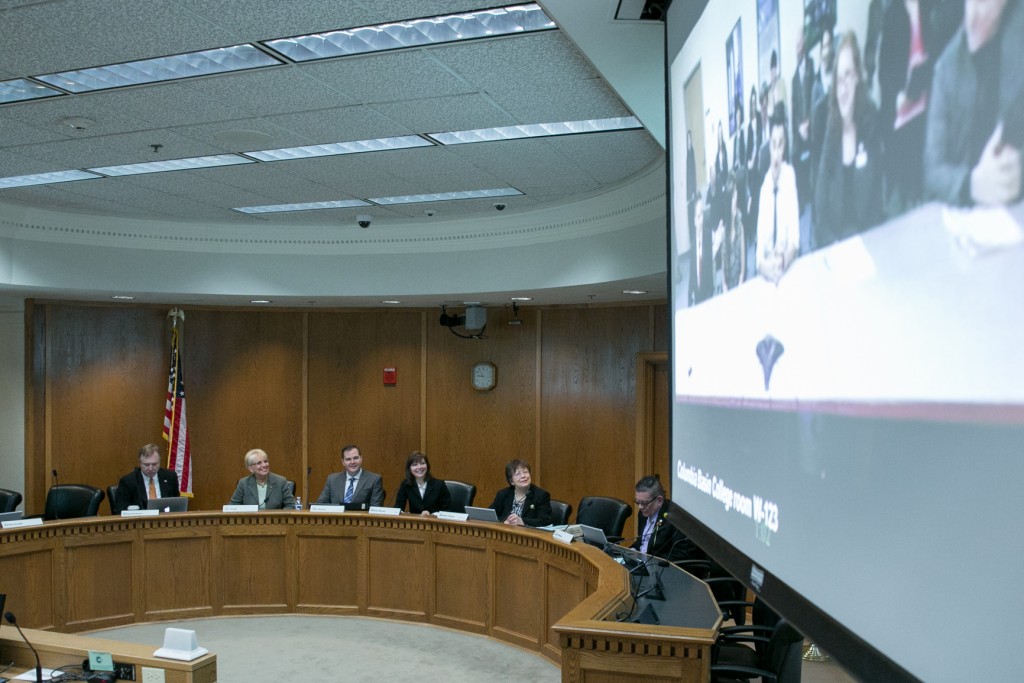Sen. Mike Padden went into the 2015 regular session with a goal of increasing the opportunities for public participation in the legislative process. An analysis of the Senate’s remote testimony pilot program shows that Padden and his colleagues in the Senate took significant steps toward achieving that goal in that chamber, and now he plans to push just as hard to encourage the House of Representatives to follow the Senate’s lead.
“I am very pleased with the success of our remote testimony pilot program in the Senate,” said Padden, chair of the Senate Law and Justice Committee. “The technology has worked well and the public has embraced the idea. The Senate chairs that took advantage of this opportunity all reported they were encouraged when they heard voices from outside of Seattle and Olympia.”
Remote testimony was offered 53 times during the regular-session pilot project – 31 times by invited participants and 22 times on an unsolicited basis from members of the public. Remote testimony was accepted by six different Senate committees. Padden’s Law and Justice Committee and the Trade and Economic Development Committee, chaired by Sen. Sharon Brown, R-Kennewick, led the pack at five times each. The Agriculture Committee followed with four uses of remote testimony. The Higher Education Committee and the Energy, Environment and Telecommunications Committee each used it twice, with Ways and Means accepting remote testimony once.

The Senate Trade & Economic Development Committee meets for a work session with remote testifying February 4, 2015.
“Thanks to the Senate allowing the remote testimony trial to move forward this year, citizens from the Tri-Cities, Moses Lake and Spokane were able to participate in the legislative process in a way they may have otherwise not been able to do, had they been required to drive all the way to Olympia,” said Jason Mercier, director of the Center for Government Reform at the non-partisan Washington Policy Center. “By extending this option to all committees, including those in the House, the door to Olympia will be open for even more Washingtonians.
“Let’s continue to build on this good first step and make it a permanent part of the legislative process.”
Padden agrees and argues that improving and increasing use of remote testimony is a crucial step toward lawmakers being better able to do their job.
“I believe strongly that the people’s representatives should listen to the people as much and as directly as possible,” said Padden, R-Spokane Valley. “The challenge of traveling to the Capitol has undoubtedly prevented countless people from speaking out about bills – especially people east of the Cascades and in the northwest and southwest corners of the state. We have the tools now to let Washingtonians be seen as well as heard, regardless of their ZIP code. So let’s use it.”










